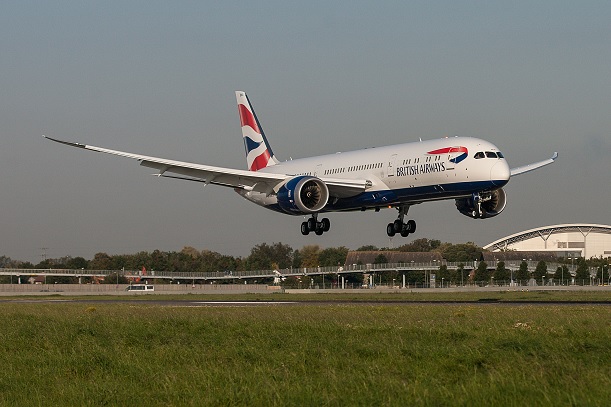The consumer launch of Deutsche Telekom and Inmarsat’s in-flight Wi-Fi service, previously arranged for this summer with airline giant IAG, has been pushed back to 2018, Mobile Europe can reveal.
No reason was given for the delay but the news follows the German operator and British satellite company’s completion of the first flight trials of their European Aviation Network (EAN) technology this week.
Inmarsat Aviation President Philip Balaam said on Wednesday (25 October) that the trials moved the service one step closer to its introduction by July 2018, a date that contrasts with previous announcements.
Posting on Linkedin in July to coincide with the launch of the satellite that will power the in-flight connectivity, Ralf Nafziger, Deutsche Telekom’s SVP for International Wholesale Business said: “There’s nothing standing in the way of our market launch in England, Germany and other parts of Western Europe at the end of this year – with full European coverage in 2018.”
IAG had said in November last year that it expected the first shorthaul aircraft, a British Airways A321, to go live with the service during summer 2017. Aircraft from Aer Lingus, Iberia and Vueling would follow throughout the rest of 2017, it noted. However, the company declined to comment when asked by Mobile Europe why the service had been delayed.
Speaking on behalf of the EAN, an Inmarsat spokesman said today (27 October) that the service launch remains on track for the end of this year. It added: “With regards to commercial service to passengers, this planning depends on the fleetwide roll-out with customers.
“We are working closely with launch customer British Airways (IAG) to make full use of planned downtime schedules to minimise disruption to their business and have a significant portion of the fleet equipped quickly.
“Based on the latest planning we expect that passengers will be able to start using the service in the first half of 2018. IAG has earlier announced aiming for 90 percent of its fleet to be installed with EAN by early 2019.”
The news overshadows the completion of the first flight trials of EAN. Deutsche Telekom and Inmarsat worked with Cobham, Thales and Nokia on the trial, which involved a CESSNA 550 Citation II aircraft which flew approximately 5,000km across Germany, Belgium, France, Spain. Further trials are scheduled for the coming weeks.
The network operates by connecting Inmarsat’s (EAN) satellite delivering S-band connectivity with around 300 LTE ground stations run by Deutsche Telekom. An antenna on a connected airplane then delivers connectivity to passengers.
Inmarsat Aviation President Philip Balaam said: “These flight trials, together with the recent news that Ofcom in the UK is the latest European regulator to authorise the ground-based stations as part of the EAN, moves the project a step closer to commencing commercial service with our launch customer, which we expect to take place in the first half of 2018.
“This will be a game-changer for the airline market, offering passengers a new gold standard in resilient and scalable inflight broadband, with unmatched high capacity, low-latency performance.”
Nafziger added: “European airspace is one of the busiest in the world and passenger volumes are expected to double in the next 15 years, with an increasing number of people wanting to stream videos or send e-mails at the same time whilst in the air.
“A combined system that seamlessly integrates satellite connectivity with a complementary LTE-based network on the ground will create the much-needed additional capacity to meet demand now and in the future.”



